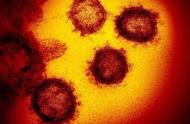
2019年年末在武汉发生的新型冠状病毒感染的肺炎疫情,一直牵动着全国人民的心。这不禁让人联想起2003年的“非典”疫情,以及同样让人谈之色变的“中东呼吸综合征”疫情。
“非典型肺炎”病毒(SARS-CoV)、“中东呼吸综合征”病毒(MERS-CoV)和2019新型冠状病毒(2019-nCoV),相信这三个名字大家都不陌生。它们同属于冠状病毒(Coronavirus, CoV)家族。
A mysterious pneumonia outbreak first reported December in Wuhan, central China's Hubei Province, has quickly spread across the country and around the world.
As of Saturday, the novel coronavirus epidemic, now declared a global health emergency by the World Health Organization (WHO), has sicken over 14,300 people and killed over 300 in China.
Scientists have attributed the outbreak to "2019-nCoV," a new strain of coronaviruses that has not been previously identified in humans.
What makes it different?
冠状病毒是一类有包膜的正向单链RNA病毒,目前已知有7种冠状病毒可导致人类疾病,其中4种在人群中普遍流行,通常引发普通感冒症状。而另外3种——SARS-CoV、 MERS-CoV,包括此次的2019-nCoV——则具有严重的危害性,可导致重症肺炎甚至死亡。
The word "corona" comes from the Latin for crown, which coronaviruses resemble under a microscope.
The coronavirus family has seven strains known to infect humans, four of which cause common colds, and the rest (including this newly discovered one in Wuhan) lead to deadly infections including Middle East Respiratory Syndrome (MERS) and Severe Acute Respiratory Syndrome (SARS).
那么,这三种致命病毒都有哪些区别?
一起来看看下面的对比图↓↓↓

Coronaviruses are zoonotic, meaning they are transmitted from animals to humans.
SARS-CoV, for instance, was transmitted from civet cats to humans while MERS-CoV travelled from dromedary camel to humans.
But in both cases bats are the original host. Civet cats and cats serve as an important intermediary that carries virus from the winged mammal to humans.
The 2019-nCoV may also originate in bats, a team led by renowned Chinese virologist Shi Zhengli said earlier, while the intermediary host remains unknown.
Their route of transmission and symptoms seem to have much in common, whereas the novel coronavirus is spreading far more quickly than the other two diseases.
Grave situation and strong actions
As of Saturday, the confirmed number of coronavirus cases on the Chinese mainland has almost tripled the amount of people infected by SARS epidemic 17 years ago, which was also originated in China.
Before the new coronavirus declared a global emergency Thursday by the WHO, there have been five global health emergencies since such declaration was formalized: swine flu (2009), polio (2014), Ebola (2014 then again in 2019), and Zika (2016).
Compared with these diseases, WHO's preliminary estimate shows the novel coronavirus has a relatively low level of mortality rate and contagiousness for now.

"The main reason for this declaration is not what is happening in China but what is happening in other countries," WHO Director-General Tedros Adhanom Ghebreyesus explained.
The major concern is the threat to countries with fragile health systems.
"In many ways, China is actually setting a new standard for outbreak response," which deserves "respect and appreciation, and are worth learning," Ghebreyesus said.
After the outbreak, the Chinese government is responding swiftly with strong measures.

Within days of the first cases being reported, Chinese scientists identified the genome sequence of the new coronavirus and shared it with the world.
In an unprecedented move, the epicenter of the outbreak Wuhan was locked down to curb the spread of the virus. Doctors, nurses, funds and medical materials poured into the city for help.
China has also vowed to build several makeshift hospitals in days to treat patients infected with the novel coronavirus. The first such hospital, Huoshenshan Hospital in Wuhan, was formally delivered to military medics on Sunday – less than 10 days after the construction began.
China has insisted timely and regular release of epidemic information.
In other moves, the country extended the Spring Festival holiday and the closure of businesses, and postponed the opening of the new school semesters. The 31 provincial-level regions all activated top-level emergency responses to the coronavirus.
China is confident in and capable of effectively containing the novel coronavirus epidemic, and eventually defeating it, the country's National Health Commission said in a statement Friday.
The WHO chief echoed the view, saying he believes that China will effectively contain and eventually defeat the epidemic.
,














